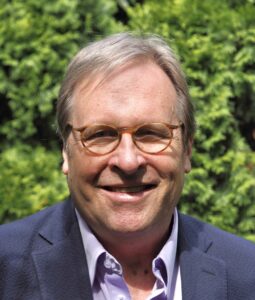Upcoming Speakers
Dr. Elizabeth Cameron
July 29, 2024
Topic: National Security in an Age of Pandemic Threats
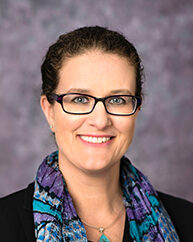 Dr. Elizabeth (Beth) Cameron is a Professor of the Practice and Senior Advisor to the Pandemic Center at the Brown University School of Public Health. She also serves as a senior advisor for global health security at the U.S. Agency for International Development and is a Practitioner Senior Fellow of the Miller Center at the University of Virginia.
Dr. Elizabeth (Beth) Cameron is a Professor of the Practice and Senior Advisor to the Pandemic Center at the Brown University School of Public Health. She also serves as a senior advisor for global health security at the U.S. Agency for International Development and is a Practitioner Senior Fellow of the Miller Center at the University of Virginia.
Cameron is a global leader in health security and biodefense. She has served for over two decades, within and outside of government, to facilitate change. She spent two tours on the White House National Security Council (NSC) staff, twice helping establish and lead the NSC Directorate on Global Health Security and Biodefense. In this role she built and led a robust team focused, every day, on leaning forward to prevent, detect, and rapidly respond to biological crises. Cameron oversaw U.S. global COVID-19 response efforts and was instrumental in developing and launching the Global Health Security Agenda and addressed homeland and national security threats surrounding biosecurity and biosafety, biodefense, emerging infectious disease threats, biological select agents and toxins, dual‐use research, and bioterrorism. She served on the Biden-Harris transition team.
Cameron has held senior posts at the Departments of State and Defense, where she created and oversaw biological and chemical security efforts. From 2010‐2013, she served as office director for Cooperative Threat Reduction (CTR) and senior advisor for the Assistant Secretary of Defense for nuclear, chemical, and biological defense programs. In this role, she oversaw the implementation of the geographic expansion of the Nunn‐Lugar CTR program. For her work, she was awarded the Office of the Secretary of Defense Medal for Exceptional Civilian Service. From 2003‐2010, Cameron oversaw the expansion of Department of State Global Threat Reduction programs and supported the expansion and extension of the Global Partnership Against the Spread of Weapons and Materials of Mass Destruction, a multilateral framework to improve global CBRN security.
Outside of government, Cameron was the Vice President for Biological Policy and Programs at the Nuclear Threat Initiative (NTI) and architect of NTI | bio, a program aimed at countering biological catastrophes. There she helped lead the development of the first Global Health Security Index and worked to build international consensus to launch a new global organization geared at improving biosafety and biosecurity.
Cameron got her start in government as an American Association for the Advancement of Science (AAAS) fellow in the health policy office of Senator Edward M. Kennedy where she worked on the Patients’ Bill of Rights, medical privacy, and legislation to improve the quality of cancer care. From 2001‐2003, she also served as a manager of policy research for the American Cancer Society.
Cameron holds a Ph.D. in Biology from the Human Genetics and Molecular Biology Program at Johns Hopkins University and a BA in Biology from the University of Virginia. Cameron is a member of the Council on Foreign Relations.
Steven Koonin
August 13, 2024
Topic: Climate Change
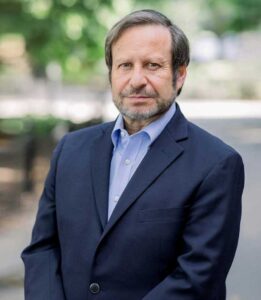 Steven Koonin joined New York University Stern School of Business as a Professor of Information, Operations and Management Sciences in September 2012. He is also Director of NYU’s new Center for Urban Science and Progress (CUSP).
Steven Koonin joined New York University Stern School of Business as a Professor of Information, Operations and Management Sciences in September 2012. He is also Director of NYU’s new Center for Urban Science and Progress (CUSP).
Professor Koonin was confirmed by the Senate in May 2009 as Undersecretary for Science at the U.S. Department of Energy, serving in that position until November, 2011. Prior to joining the Obama Administration, he was BP’s Chief Scientist, where he was a strong advocate for research into renewable energies and alternate fuel sources. He came to BP in 2004 after almost three decades as Professor of Theoretical Physics at the California Institute of Technology, serving as the Institute’s Vice President and Provost for the last nine years. He most recently held a position at the Science and Technology Policy Institute of the Institute for Defense Analyses in Washington, DC.
Professor Koonin is the recipient of numerous awards and honors, including the George Green Prize for Creative Scholarship at Caltech, a National Science Foundation Graduate Fellowship, an Alfred P. Sloan Foundation Fellowship, a Senior U.S. Scientist Award (Humboldt Prize) and the Department of Energy’s Ernest Orlando Lawrence Award. He is a Fellow of several professional societies, including the American Physical Society, the American Association of the Advancement of Sciences, and the American Academy of Arts and Sciences, and a member of the Council on Foreign Relations and the U.S. National Academy of Sciences.
Professor Koonin received his B.S. in Physics from the California Institute of Technology in 1972 and his Ph.D. in Theoretical Physics from MIT in 1975.
John Lee
September 9, 2024
Topic: Indo-Pacific Security
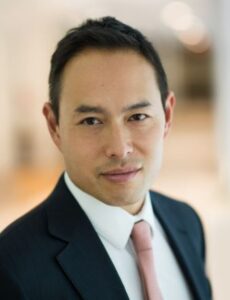 John Lee is a senior fellow at Hudson Institute. He is also a senior fellow (non-resident) at the United States Studies Centre and adjunct professor at the University of Sydney.
John Lee is a senior fellow at Hudson Institute. He is also a senior fellow (non-resident) at the United States Studies Centre and adjunct professor at the University of Sydney.
From 2016 to 2018, he was senior national security adviser to Australian Foreign Minister Julie Bishop. In this role, he served as the principal adviser on Asia and for economic, strategic, and political affairs in the Indo-Pacific region.
Dr. Lee was also appointed the Foreign Minister’s lead adviser on the 2017 Foreign Policy White Paper, the first comprehensive foreign affairs blueprint for Australia since 2003 and written to guide Australia’s external engagement for the next ten years and beyond.
He has held adjunct professorships at the Australian National University and University of Sydney. He is one of the foremost experts on the Chinese political economy and on strategic and economic affairs pertaining to the Indo-Pacific.
Dr. Lee’s articles have been published in leading policy and academic journals in the United States, Asia, and Australia.
He received his master’s and doctorate in international relations from the University of Oxford and his bachelor of laws and arts degrees (first class, philosophy) from the University of New South Wales.
He is based in Sydney, Australia.
Jeremy Konyndyk
October 15, 2024
Topic: Providing Humanitarian Assistance in a Conflict Zone
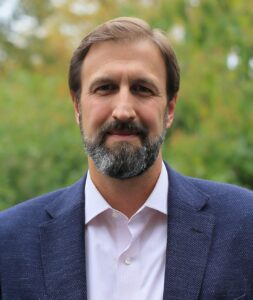 Jeremy Konyndyk is president of Refugees International. A committed humanitarian advocate and seasoned emergency operator, he has served in senior appointments in two U.S. administrations and in a range of U.S. and overseas NGO leadership positions.
Jeremy Konyndyk is president of Refugees International. A committed humanitarian advocate and seasoned emergency operator, he has served in senior appointments in two U.S. administrations and in a range of U.S. and overseas NGO leadership positions.
Prior to joining Refugees International, Jeremy served in the Biden administration as USAID’s lead official for COVID-19. He oversaw USAID’s multi-billion-dollar COVID-19 assistance portfolio, led the design and implementation of the administration’s Global VAX initiative, and coordinated the U.S. government’s global donations of hundreds of millions of vaccine doses. He later served as the administration’s lead official for the global MPox response. He also served on the Biden-Harris transition teams for the Departments of State and Health and Human Services.
From 2013–2017, Jeremy served in the Obama administration as the director of USAID’s Office of U.S. Foreign Disaster Assistance (OFDA), where he led the U.S. government’s response to international disasters. He managed a large global team with annual resources of more than $1.4 billion, responding to crises including the Ebola outbreak in West Africa, the 2016 Ethiopia drought, conflict in Northern Nigeria, the Nepal earthquake, the Iraq crisis, Typhoon Haiyan in the Philippines, resurgent conflict in South Sudan, and the war in Syria, among other crises. He also led the Agency’s preparations for the 2016 World Humanitarian Summit.
Between his administration appointments, Jeremy worked from 2017–2020 as a senior policy fellow at the Center for Global Development, focusing on humanitarian response and pandemic preparedness research. He developed and led CGD’s “Rethinking Humanitarian Reform” initiative, exploring how the humanitarian system could meaningfully shift power and influence toward crisis-affected populations – and why it has traditionally failed in its commitments to do so.
Jeremy has worked extensively in the humanitarian NGO sector, serving as a country director in West Africa and East Africa with American Refugee Committee (now Alight), and as a policy director in Washington, DC with Mercy Corps. He began his career in the Balkans, working on the response to the 1999 war in Kosovo. He also worked with the U.S. Department of State’s Bureau of Population, Refugees, and Migration.
He is currently a member of the World Health Organization’s high level Independent Oversight and Advisory Committee, which oversees the agency’s Health Emergencies Programme and advises the WHO Director-General. He has served as the U.S. representative to the board of Gavi, the Vaccine Alliance, and as the U.S. representative and chair of the OCHA Donor Support Group (ODSG).
He lives in Takoma Park, Maryland with his wife, two sons, and dog, and enjoys baking, traveling, and triathlons.
Clark Adams
November 11, 2024
Topic: Defense Diplomacy in Central Asia
Clark Adams served as the Director for Central Asian Affairs in the Office of the Under Secretary of Defense for Policy from January 2007 until his retirement in February 2024. He and his team were responsible for the management of US defense relations with Kazakhstan, Kyrgyzstan, Tajikistan, Turkmenistan, and Uzbekistan. In spring 2008, he was temporarily detailed to the National Security Council to serve as the Director for Central Asian Affairs, where he was responsible for all matters related to US relations with the five Central Asian states.
Previously, Mr. Adams held the position of Director for US Capabilities Development for the Deputy Assistant Secretary of Defense for Stability Operations, where his portfolio included implementing the US Department of Defense (DoD) Directive on “Military Support to Security, Stabilization, Transition, and Reconstruction Operations” and providing Defense Department support to the 2005 national security presidential directive on irregular warfare and counterinsurgency. Mr. Adams also held the position of Deputy Director in the DoD Nonproliferation Policy office. In this role, he was the Office of the Secretary of Defense Representative to the Missile Technology Control Regime, Nuclear Suppliers Group, and the Australia Group on Chemical & Biological Weapons and worked on regional issues such as North Korean missile proliferation, Chinese nonproliferation controls, and strategic cooperation with India.
His earlier government experience includes security assistance and foreign military sales, weapon systems export policies, international defense cooperation and intelligence. He also was a research assistant at the Center for Strategic and International Studies.
Mr. Adams has an MS in National Security Strategy from the National War College, an MA in International Relations from The Pennsylvania State University, and a BA in Economics and Political Science also from Pennsylvania State University.
